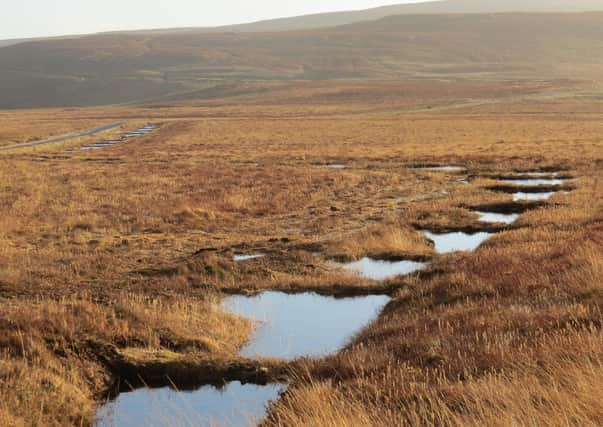Economic benefit of peatland restoration revealed


This assessment of peatland habitat in Northern Ireland shows that investing in restoration makes economic sense. The study analysed two restoration projects at Montaighs Moss & Garron Plateau and explored the potential value that could be derived from further restoration.
The study found that there would be nearly £50 million worth of benefits if the whole of the Garron Plateau was restored by 2045, which would outweigh the cost of delivering the restoration at a scale of nearly 1:4. Much of this value comes from carbon storage and sequestration, highlighting the vital role that peatland restoration can play in meeting ambitious climate targets.
Advertisement
Advertisement
Other benefits included flood mitigation services which could be increased by 27% through peatland restoration on Garron Plateau, reducing associated costs by nearly £60,000 over the lifetime of the project. It also found that delivering peatland restoration across both sites can also help increase employment, with estimates of nearly 20 full time jobs being created in the local economy as a result.
Projects like this also contribute to improved water quality, health and wellbeing and increased biodiversity. The study was part funded by Northern Ireland’s Department of Agriculture, Environment and Rural Affairs (DAERA), as part of its Challenge Fund and was launched in partnership at an event attended by politicians, policy makers and experts from the sector.
Dr Jonathan Bell, RSPB NI Head of Land and Sea Policy said: “Through working in partnership in some of our most treasured landscapes, we’ve seen the benefits that peatland restoration can bring for climate, nature and people. This new study makes a compelling business case for peatland restoration and this vital work must be scaled up to ensure that these habitats can play an important role in addressing the nature and climate emergencies, as well as supporting local economies. We would like to thank DAERA for their support with this project and hope it informs and supports a new peatland strategy which commits to an ambitious programme of restoration in Northern Ireland.”
Dr Sara McGuckin from Northern Ireland Environment Agency/DAERA, who funded the study commented: “We are pleased to have been able to support RSPB NI with this study which makes a significant contribution to our evidence base. It provides robust evidence demonstrating the benefits of peatland restoration in securing healthy, functioning peatland habitats. This will play an important role in underpinning the forthcoming draft Northern Ireland Peatland Strategy and emerging Resilient Peatland Programme to protect and deliver resilient peatland ecosystems across Northern Ireland.”
Advertisement
Advertisement
Although, peatland covers approximately 12% of the land area of Northern Ireland, 86% of peatlands has been damaged by pressures including drainage, overgrazing, afforestation, burning and extraction in lowland areas.
The leading conservation charity has been calling on to the Northern Ireland Executive to act urgently to set out clear restoration targets and allocate substantial funding for restoration and rewetting of the habitat to halt greenhouse gas emissions in line with achieving net zero targets. Other nations have invested in peatland restoration. For example, Scotland has committed £250 million over the course of 10 years, the Republic of Ireland recently invested £108 million and Wales has recently committed to increased funding.
RSPB NI works to protect precious species and habitats across Northern Ireland and campaigns for targets in law to save nature. The charity has been operating in Northern Ireland for over 50 years to inspire a world richer in nature. The charity has more than 10,000 members, around 60 employees, 300 volunteers and 10 reserves. To read the full report or learn more about RSPB’s work visit http://bit.ly/ValuingourPeatlands